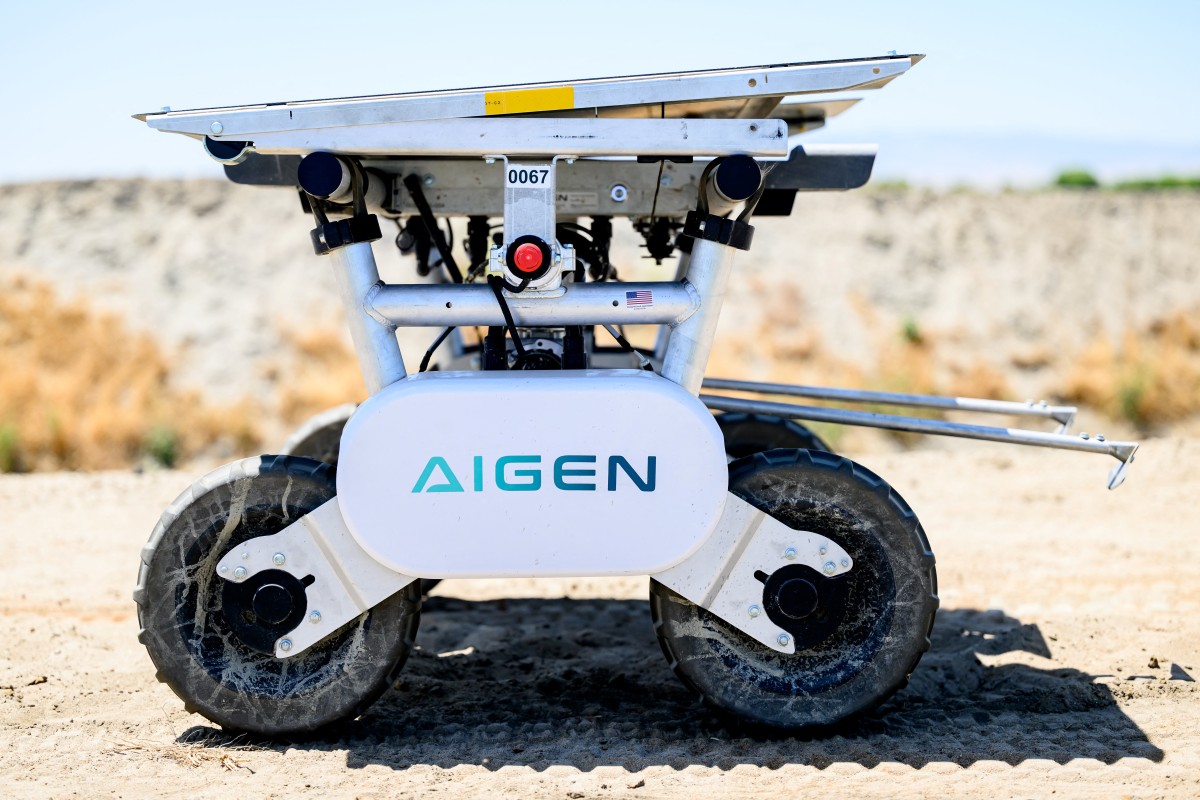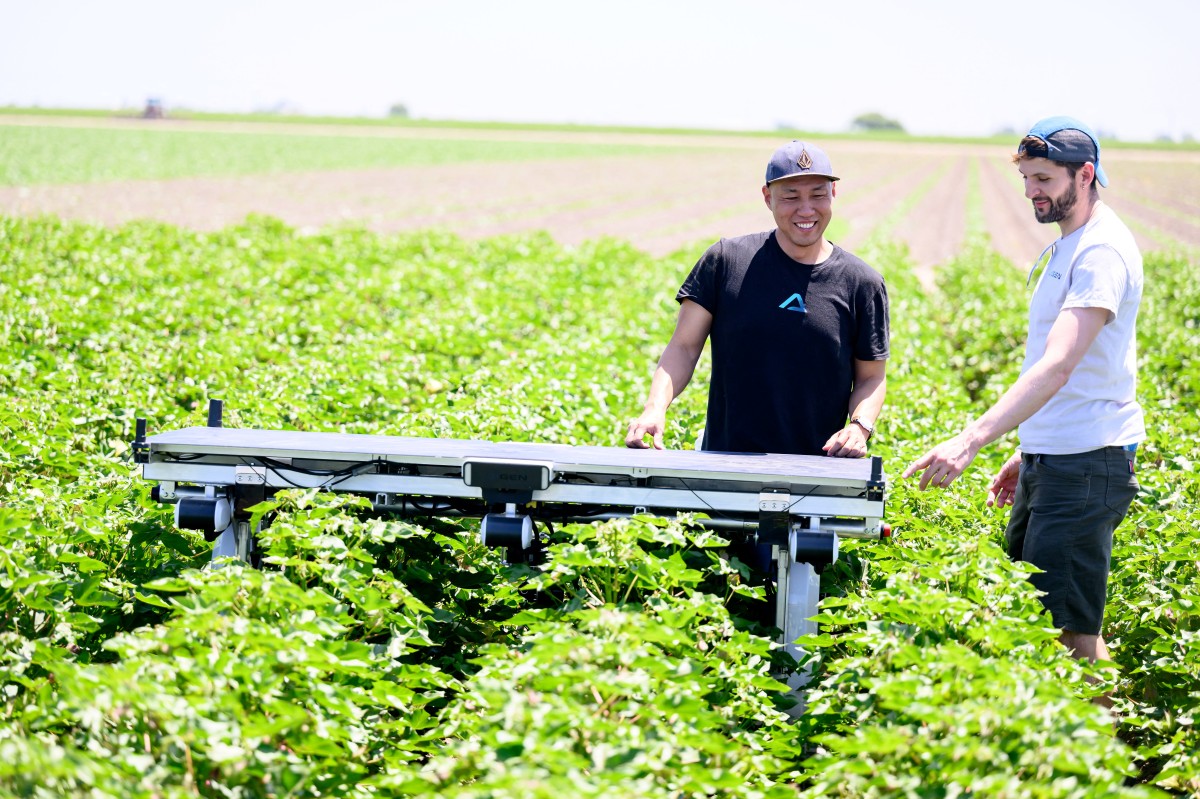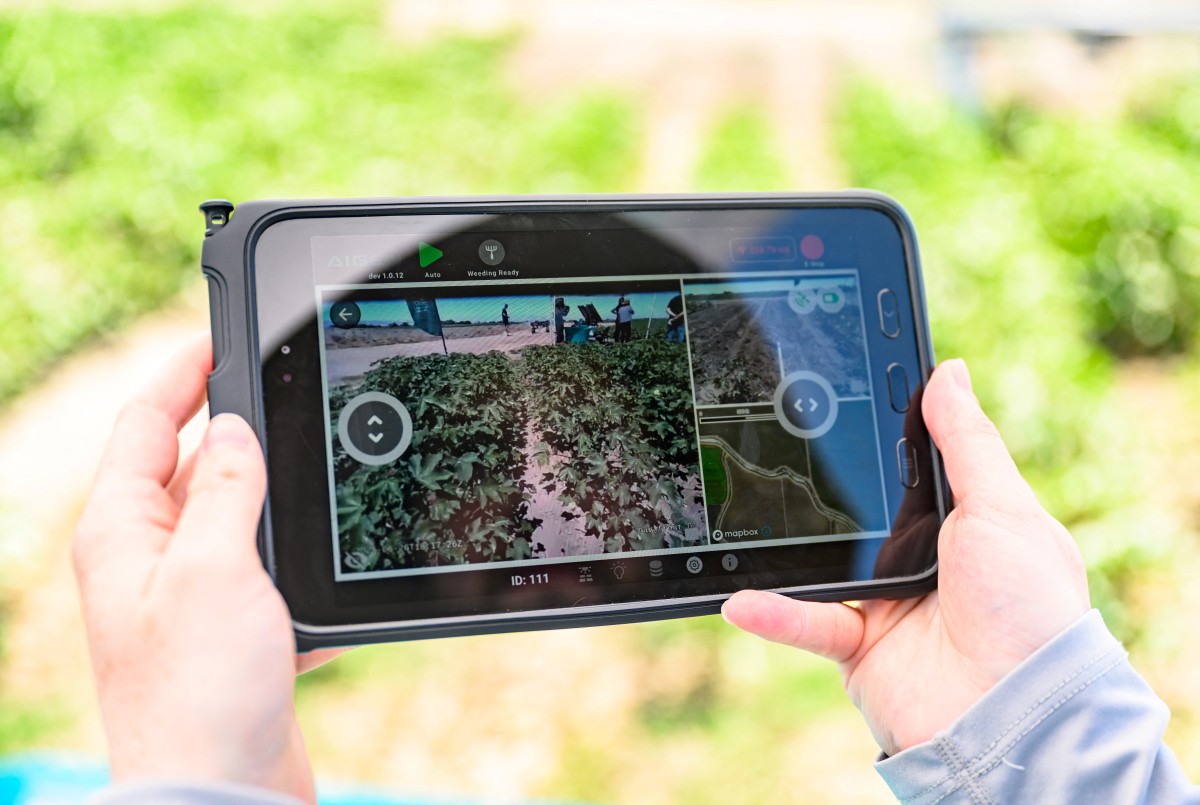
By Agence France-Presse
Oblivious to the punishing midday heat, a wheeled robot powered by the sun and infused with artificial intelligence carefully combs a cotton field in California, plucking out weeds.
As farms across the United States face a shortage of laborers and weeds grow resistant to herbicides, startup Aigen says its robotic solution—named Element—can save farmers money, help the environment, and keep harmful chemicals out of food.
“I really believe this is the biggest thing we can do to improve human health,” co-founder and Chief Technology Officer Richard Wurden told AFP, as robots made their way through crops at Bowles Farm in the town of Los Banos.
“Everybody’s eating food sprayed with chemicals,” he added.
Wurden, a mechanical engineer who spent five years at Tesla, went to work on the robot after relatives who farm in Minnesota told him weeding was a costly bane.
Weeds are becoming immune to herbicides, but a shortage of laborers often leaves chemicals as the only viable option, according to Wurden.
“No farmer that we’ve ever talked to said ‘I’m in love with chemicals’,” added Aigen co-founder and chief executive Kenny Lee, whose background is in software.
“They use it because it’s a tool—we’re trying to create an alternative,” he added.

Element, the robot, resembles a large table on wheels with solar panels on top. Metal arms equipped with small blades reach down to hoe between crop plants.
“It actually mimics how humans work,” Lee said as the temperature hit 90 degrees Fahrenheit (32 degrees Celsius) under a cloudless sky.
“When the sun goes down, it just powers down and goes to sleep; then in the morning it comes back up and starts going again,” he added.
The robot’s AI system takes in data from on-board cameras, allowing it to follow crop rows and identify weeds.
“If you think this is a job that we want humans doing, just spend two hours in the field weeding,” Wurden said.
Aigen’s vision is for workers who once toiled in the heat to be “upskilled” to monitor and troubleshoot robots.
Along with the on-board AI, robots communicate wirelessly with small control centers, notifying handlers of mishaps.

Future giant?
Aigen has robots running in tomato, cotton, and sugar beet fields, and touts the technology’s ability to weed without damaging the crops.
Lee estimated that it takes about five robots to weed 160 acres (65 hectares) of farm.
The robots made by the 25-person startup—based in the city of Redmond, outside Seattle—are priced at $50,000.
The company is focused on winning over politically conservative farmers with a climate friendly option that relies on the sun instead of costly diesel fuel that powers heavy machinery.
“Climate, the word, has become politicized, but when you get really down to brass tacks, farmers care about their land,” Lee said.
The technology caught the attention of Amazon Web Services (AWS), the e-commerce giant’s cloud computing unit.
Aigen was chosen for AWS’ “Compute for Climate” fellowship program that provides AI tools, data center power, and technical help for startups tackling environmental woes.
“Aigen is going to be one of the industry giants in the future,” said AWS head of climate tech startups business development Lisbeth Kaufman.
“I think about Ford and the Model T, or Edison and the light bulb—that’s Kenny and Rich and Aigen,” she added.
